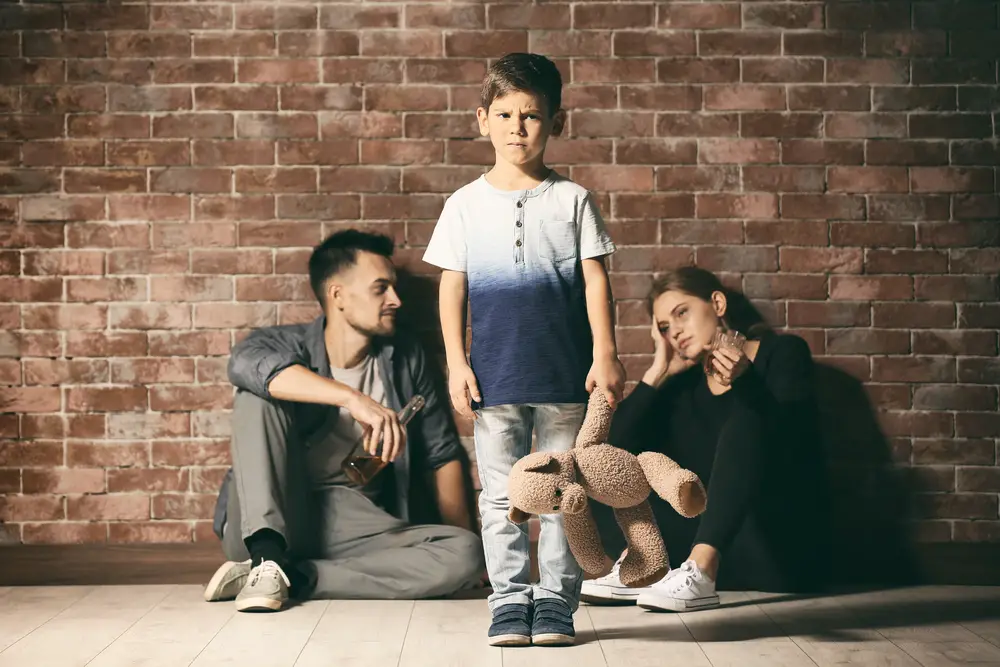Nowadays, when an adult goes out, it’s always to a bar or a pub to have a drink or to socialize, as they call it. For the younger adult, it is to a house party or to a fancy party which is another way of saying that they are headed out to have drinks without the conversation, of course. Statistically speaking, drinking has been the most common social activity for most adults since the early 1800s.
Estimates put it that alcohol is regularly consumed by 60% of the developed world, and men reaching a staggering 80% while women at 58%. It is considered acceptable and even expected for an adult to order alcohol before the start of any meal in Europe.
So what exactly is the impact on a child when the “responsible” adult drinks around them? This is, of course, a topic that requires constant debate. Even in the olden days, it was discussed quote well in many stories across the world, some stories even dating back to over 2000 years ago. The negative impacts of drinking are showcased so clearly in the short story Lamb to the Slaughter by Roald Dahl. In Lamb to the Slaughter, policemen investigating a crime miss out on identifying key evidence since they are intoxicated.
In this informative blog post, we shall dive into some of the logical and reasonable impacts that a child can face due to an adult drinking in front of them.
Table of Contents
Toggle1. Alcohol alters regular behavior

It is everyone’s common knowledge that alcohol impacts behavior. Some of the most common things that one can see are that the intoxicated man does not speak clearly but has a slur. More often than not, a drunken person ends up speaking words that they are not supposed to, thus hurting people. Drunken people are falling down… that’s impaired coordination right there! It is important to note that children are highly impressionable. If the parent showcases behavior that is not appropriate, the children will end up emulating it.
2. Fear in Children
Drunk people also behave illogically and irrationally since they are not in control of their actions. This may end up confusing children since they are used to certain actions and reactions. A psychological angle is that it can be confusing and scary for children as they are put in an uncomfortable position. This will, as per many psychologists, result in long-term social effects on their behavior.
3. Normalizing alcohol
Children are very attentive and, unlike adults, pick up very subtle cues from what they see. This may end up shaping their views and attitude toward drinking. A father or mother who drinks regularly, even in moderate quantities, in front of their child impacts their attitude. It may well result in the child thinking that alcohol is something that must be consumed on a daily basis.
4. Stress Drinking

Many adults associate the need to relieve stress with drinking. People in high-end careers and positions feel the pressure to deliver and learn that alcohol suppresses any negative emotions. What’s worse is that when they do this in front of children, they end up learning or believing that this is the normal way to deal with stress or with negative emotions of any sort.
5. Impaired adults don’t parent well.
Ask any parent about parenting, and they will say that it is an art and a science that requires the most delicate of touches. It requires patience and constant vigilance against one’s impulses. The parent is expected to pay high levels of attention to the child’s needs and subtle cues since a child may not be able to communicate this very well. Explaining something to a child without thought can result in misrepresentation of information and will be hard to change for a child. And, of course, the most dangerous impact of alcohol is impaired logical reasoning.
The impact of parenting on a child has long been discussed in literary and psychological circles, and it is most famously depicted in the short story Rappaccinis Daughter authored by the great Nathaniel Hawthorne. Rappaccini fails to be a good parent to his beautiful daughter mainly due to his impaired logic
6. Stepping stone to drugs

Most drug addicts start off with alcohol at a very young age when reasoning is skewed, and the dangers of the world and the dangers of addiction are unknown to the child. They end up drinking and experimenting with higher quantities of alcohol, and since it has no social barrier, they experiment with other substances, such as drugs. This leads to a vicious cycle from which recovery is a long road of pain and suffering.
7. It can lead to dangerous consequences
While we discussed for very long on the psychological and mental aspects of drinking in front of your children, one must not forget that it can be physically dangerous as well. When one drinks too much, they may cause accidents, engage in violence, fall down, or injure the child. It is an absolute must for any parent to be fully present at all times and not endanger their child by being drunk.
8. Inability to have fun without alcohol

One of the interesting experiments in social psychology identified that children associate alcohol with good memories since their parents always drink in front of them. It becomes “apparent” to them at a very young age that in social gatherings and when having a good time, adults must ingest alcohol and vice versa. It is not thought of as a one-way street, and hence they associate happiness with alcohol, and hence this results in learning a forced behavior of being happy only when alcohol is present.
Conclusion
We have seen quite clearly that a parent drinking in front of one’s child will have physical as well as mental impacts negatively. One of the Parent’s important tasks is to keep their child safe, so for that, they must showcase healthy behaviors in front of their child to model, and this includes alcohol.

I am a passionate beer connoisseur with a deep appreciation for the art and science of brewing. With years of experience tasting and evaluating various beers, I love to share my opinions and insights with others and I am always eager to engage in lively discussions about my favorite beverage.
















